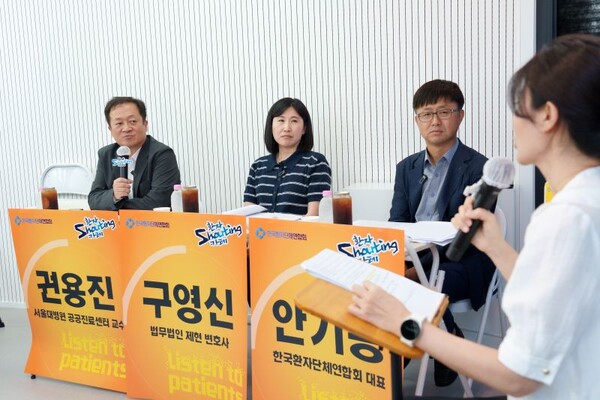The Korea Alliance of Patient Organizations has called for improving the Ministry of Health and Welfare's “Parallel Approval, Evaluation, and Negotiation Pilot Program.”

Following the first pilot program's failure to deliver expected results, the patient group has also questioned the effectiveness of the drugs targeted in the second pilot program.
According to a statement the alliance submitted to the ministry's Insurance Drug Division last Thursday, the average time required for listing drugs from the first pilot project, such as Qarziva (dinutuximab beta) and Bilvay (odevixibat), was approximately 14 months (426 days).
For Bilvay, the process took about 24 months (721 days), including the time from its voluntary withdrawal. As a result, the program’s intended purpose was not fully met.
“Although the government introduced the system to speed insurance listing for treatments targeting severe, life-threatening rare diseases and to improve patient access, the actual reduction in listing periods was minimal,” the alliance said. “For example, drugs in the first pilot project took over 14 months on average to be listed, showing limited improvement compared to before the system’s implementation.”
It said, "To improve access to treatment, concrete, effective measures are needed to reliably cut listing periods."
The ministry chose three treatments -- Rimqarto (anbalcaptagene autoleucel), Fintepla (fenfluramine), and Winrevair (sotatercept) -- for the second pilot project on Dec. 10 last year and is now reviewing them.
Winrevair, which treats pulmonary arterial hypertension, received approval from the Ministry of Food and Drug Safety (MFDS) on July 20. It is now under review at the subcommittee stage of the Health Insurance Review and Assessment Service's Pharmaceutical Reimbursement Evaluation Committee (PREC).
In contrast, nearly a year after their selection, the other two items still await MFDS approval, so it is not yet possible to determine whether the second pilot project actually shortens the listing period compared to the first.
The patient group also identified additional barriers to patient access unrelated to the pilot program's parallel process.
Specifically, the alliance pointed out that procedural opacity and bottlenecks remain unresolved, including non-disclosure of review schedules, prolonged requests for supplementary information, and delays in negotiation orders.
The alliance noted that, unlike the Cancer Disease Review Committee (CDRC), the PREC subcommittee does not disclose whether it meets or the outcomes of its meetings.
“Patients and families cannot track the progress of rare disease treatments in this subcommittee,” the alliance said, demanding at least basic access to information.
The process for requesting supplementary information was also targeted for improvement.
The alliance said pharmaceutical companies repeatedly delay the evaluation period by submitting supplementary materials late. It called for clear deadlines and the sharing of schedules when requesting supplements.
Additionally, it noted that even after deliberation by the PREC, there are cases in which the Ministry of Health and Welfare's drug price negotiation orders are delayed in reaching the National Health Insurance Service.
“If administrators do not process procedures on time, realistically, shortening the listing period becomes impossible,” it said.
Related articles
- Patient-centered access to new drugs is the core of future healthcare: KRPIA
- Patient and pharmacist groups criticize health authorities’ lenience toward pharma firms
- Teen with rare disease left in vegetative state after hospital error; family demands answers
- Medical students apologize as they return to class after year-long standoff
- Patients demand doctors stop using lives as leverage in policy fights
- Patient group urges trainee doctors to ‘return voluntarily and unconditionally’
- Telminuvo launch highlights shift toward low-dose dual therapy as 1st-line standard in hypertension

